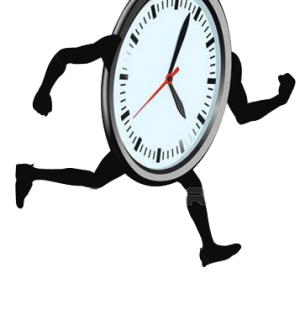- Belgium comes to Yamashita Park
- Residential Villa in Phuket Entices Remote Workers With Long-Stay Rates
- Rare pieces of French glass art at the Mirai Museum of Art
- Feast on fresh fish and seafood at the 2024 ‘Sakana’ Festival
- Would you like to ride in a Louis Vuitton gondola lift?
- Naked Snow Aquarium
- Festive lights at Yomiuriland will get you feeling the holiday vibes
Transforming Work Part 5 – Slowing Down to Speed Up

Are you the kind of leader who is always putting pressure on your team (and yourself) to get things done faster? Research shows that this management methodology is counterproductive. Contrary to the deadline “rush” that is commonly experienced, people under time pressure don’t think faster, they think less.
Research by Teresa Amabile, a professor at Harvard Business School, showed that despite participants reporting feeling more creative on time-pressured days, they actually showed less evidence of creative thinking.
Richard Boyatzis, a professor in organizational behaviour, psychology and cognitive science at Case Western Reserve University, has also shown that the time pressure of deadlines has both positives and negatives. His research shows that, while deadlines do help people focus on and complete tasks quickly, they make them less open to other ways of approaching the problem.
At the end of the day, this means that people who are focused on getting a task done quickly to meet a deadline are going to stick with the tried and true method, even if it might not be the best one. When facing barriers, they are more likely to look for Band-Aid solutions than to spend the time necessary to identify the root of the problem, and implement solutions that will prevent the issue from recurring down the road.
Are you a speed demon?
If you are always in a hurry to get things done and are often frustrated that things take longer than expected, there is a good chance you are operating on the unproductive side of the speed equation. Do you regularly ask:
• What is the soonest can we get this done?
• How quickly can we get started?
• How can we get this done faster?
• What is taking “them” so long?
If so, your goals are likely overly ambitious (if not completely unreasonable) and you are compromising quality for speed. To be fair, there are times in both life and work where “good enough” and off your plate is better than delaying completion to reach perfection. Over the long-term, however, focusing on speed above all else creates a culture where creativity withers and a quick-fix culture prevails.
So what is the alternative?
Slow down to speed up.
We teach our clients to focus on sustainability as well as speed by working to achieve what we call a “Result of Note” (a RON for short). A Result of Note is a result, system, or habit that once achieved or implemented seldom, if ever, needs to be revisited. While this may take longer up front, over the long term it saves time because it cultivates creativity and builds the habits of long-term, big-picture thinking into the achievement of any result. Our process teaches clients to step back, understand the big picture, clarify their goals, and identify the root causes of their frustrations, and develop solutions that will not only grow their business, but ensure that they can sustain and build upon that growth long term. In essence, we teach them how to “slow down to speed up”.
It can be difficult for leaders to shift out of their addiction to speedy results and learn to value spending the time it takes to truly add value to any product, project or process in a business. Consider the following:
• Despite the fact that it takes time and money to develop a proper brand style guide, most successful companies eventually do this as they come to recognize that the lack of a consistent, professional image in their communications materials is costing them in their ability to grow their market share, as well as in the amount of time it collectively takes for each employee to be designing their own materials.
• Creating templates and scripts for responding to common e-mails or phone inquiries seems like a no-brainer, but you would be surprised how many companies lack these efficiencies. Why? It is not because leaders don’t understand their importance. It is usually because they have not allowed enough time to do the job fully. The scripts and templates may be poorly written so staff are uncomfortable using them. They may not have invested time in educating people on where the tools are and how to use them. They may have stored them in a place that is confusing or time-consuming to locate.
Balancing Speed and Sustainability
To restore the balance between speed and sustainability, prioritize time for planning, organizing and strategizing. If it feels like things are taking too long, get curious about why instead of pushing, prodding, or cheerleading your team to go faster.
Ask yourself the following questions:
• Does speed really matter? Why? What am I afraid will happen if we go slower?
• What are we compromising to get more speed? Is it worth it?
• Is “good enough” okay on this project, or is it a foundation piece that needs to stand the test of time?
• What timelines should we set for this project based on everything else we have on our plate?
• Do we have the bandwidth to take this on now?
• What other deadlines would need to be changed or projects postponed to fast track this one?
• Is there a real benefit to doing this now vs. later? What might be the benefit of postponing it?
• Have we allowed enough time in the schedule for planning, creativity, and fine-tuning to ensure we do it well?
At the end of the day, choosing the slow and steady approach vs. the sprint and crash one is going to be better for not only the success of your business, but for your sanity.















